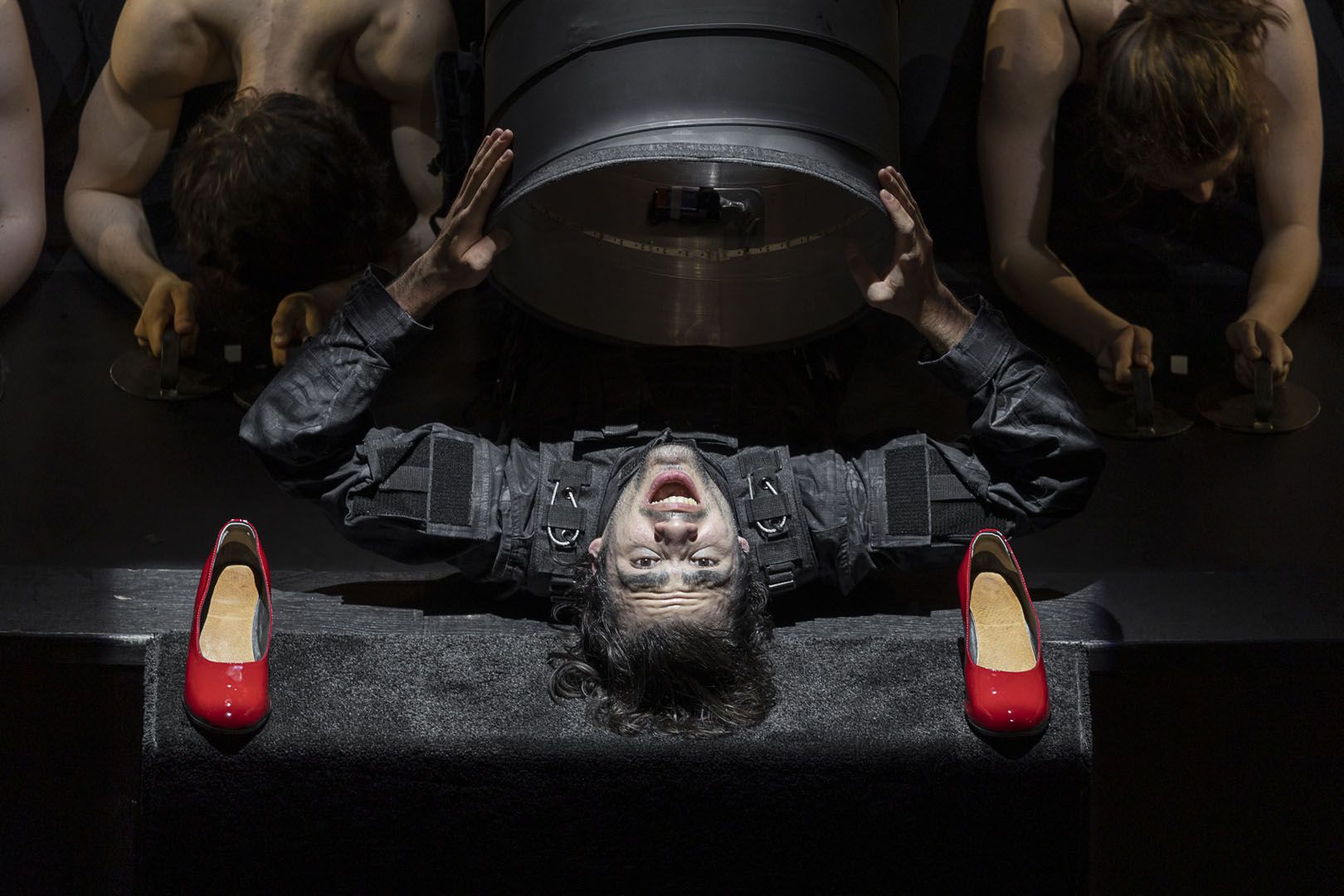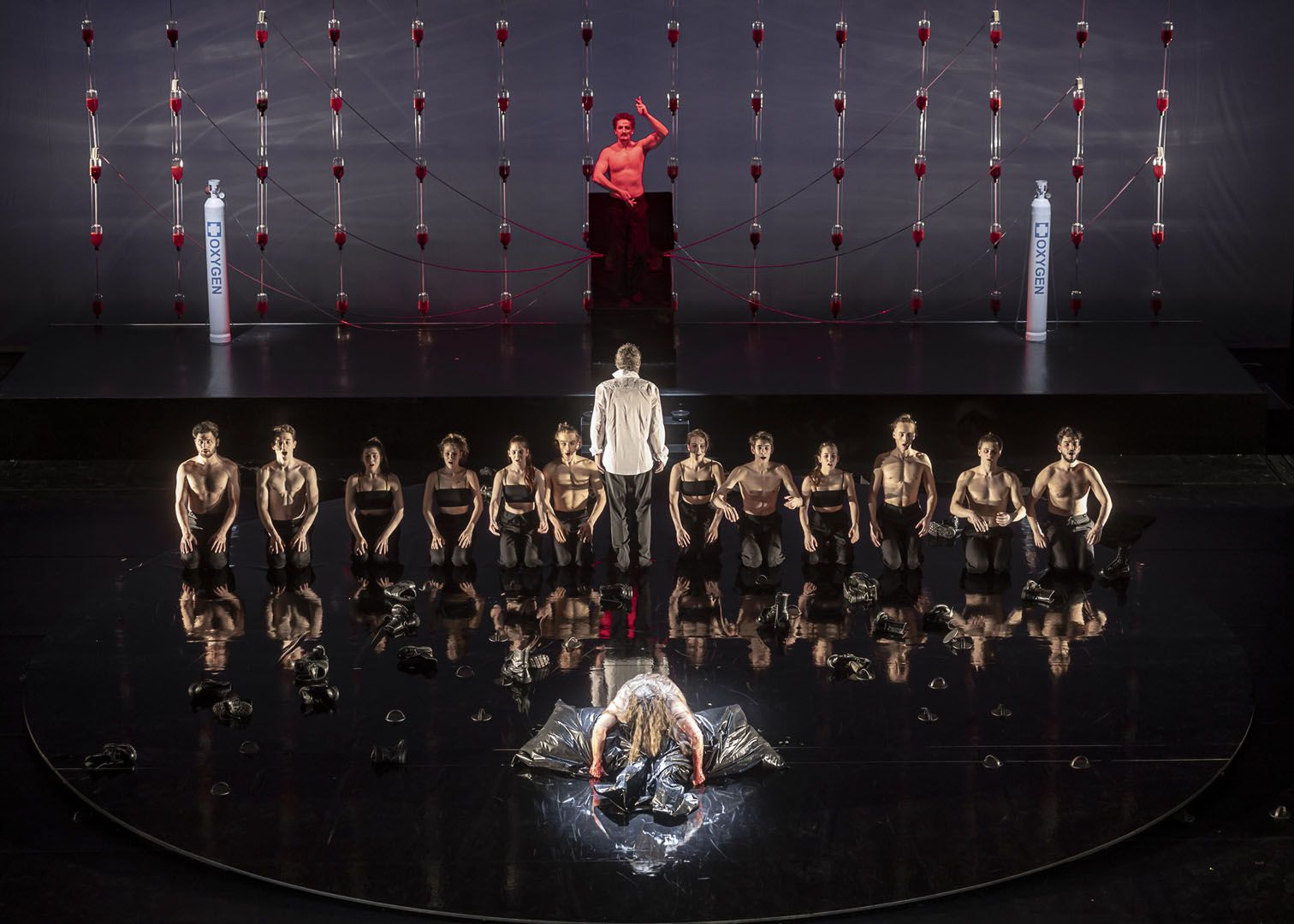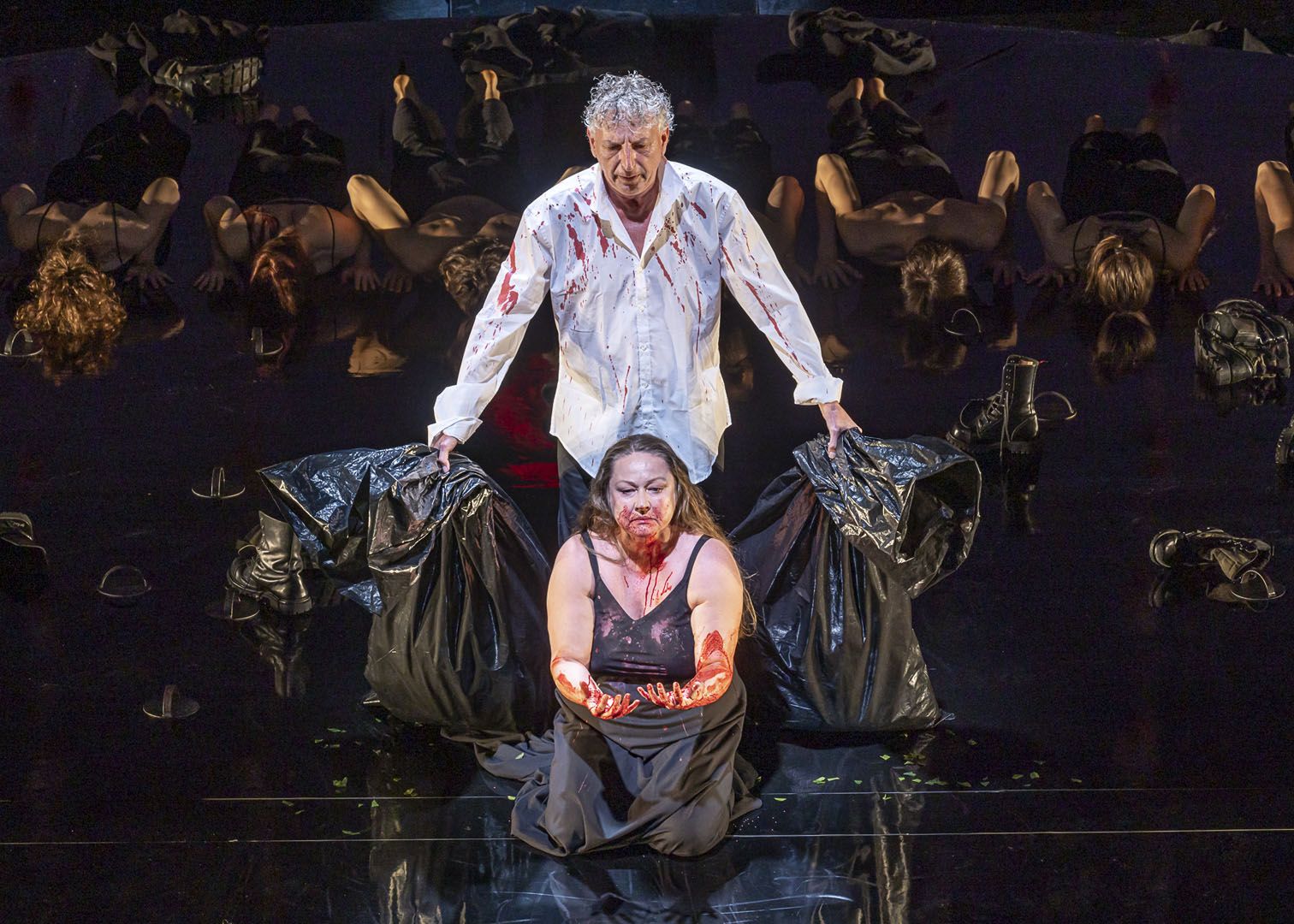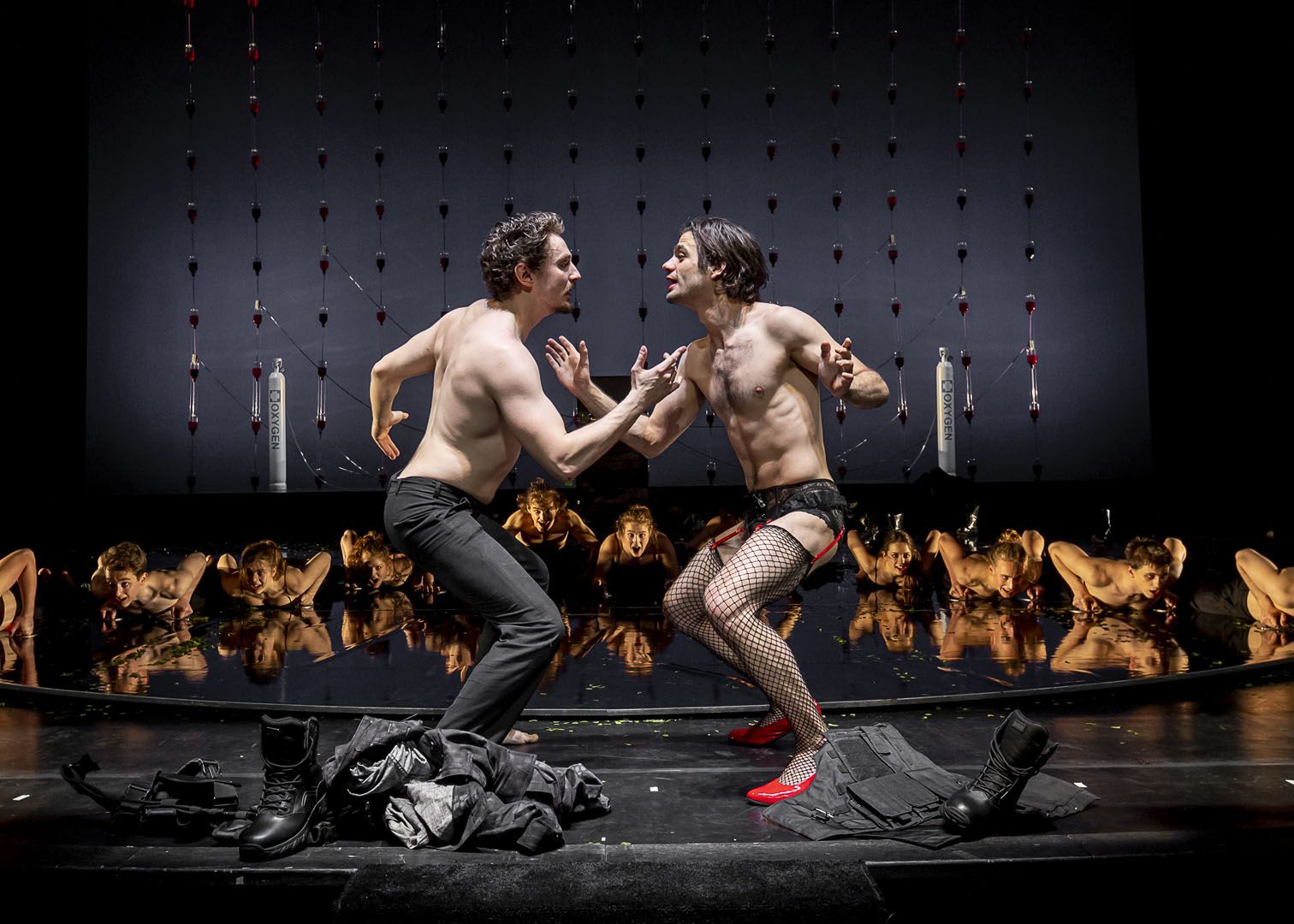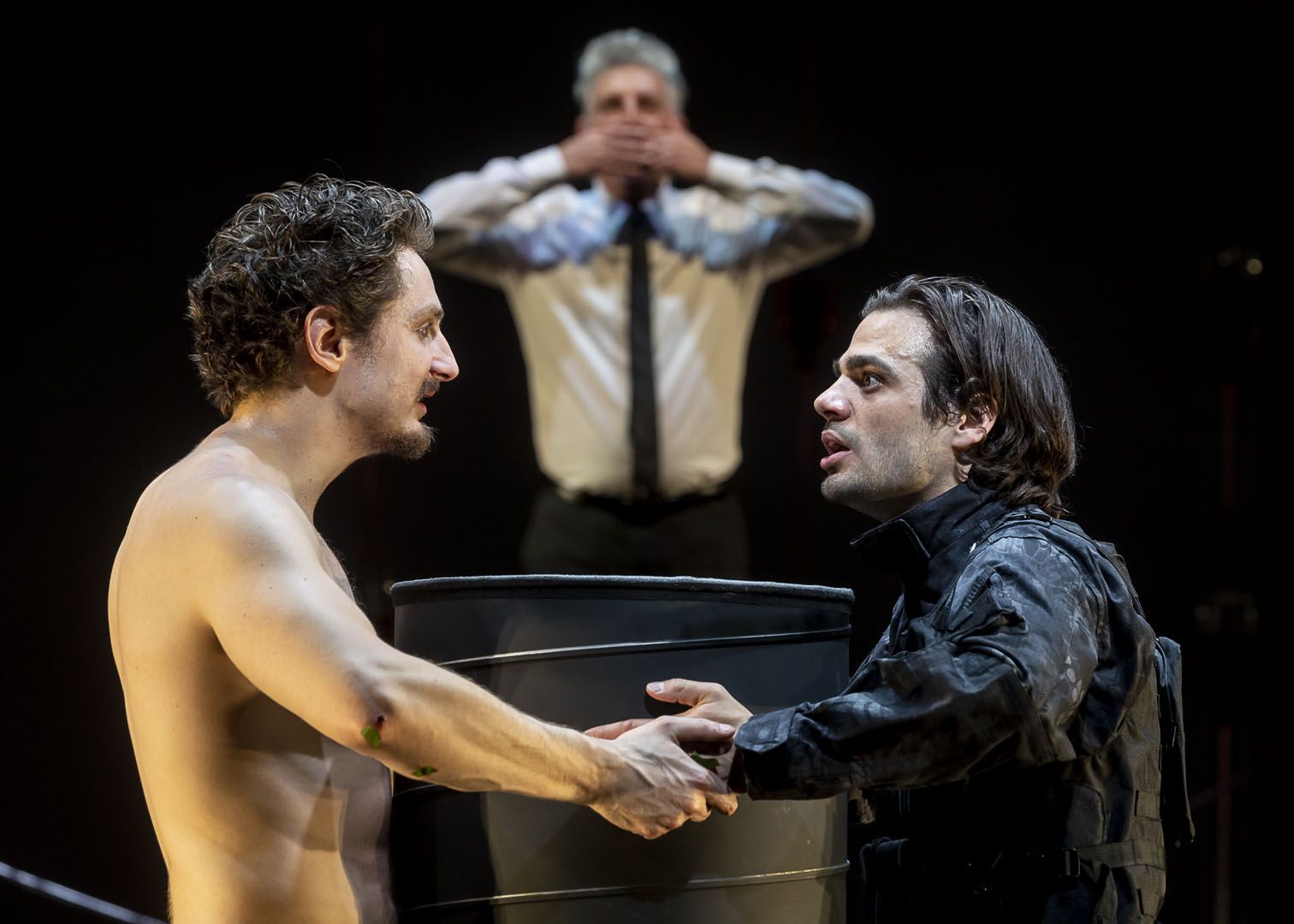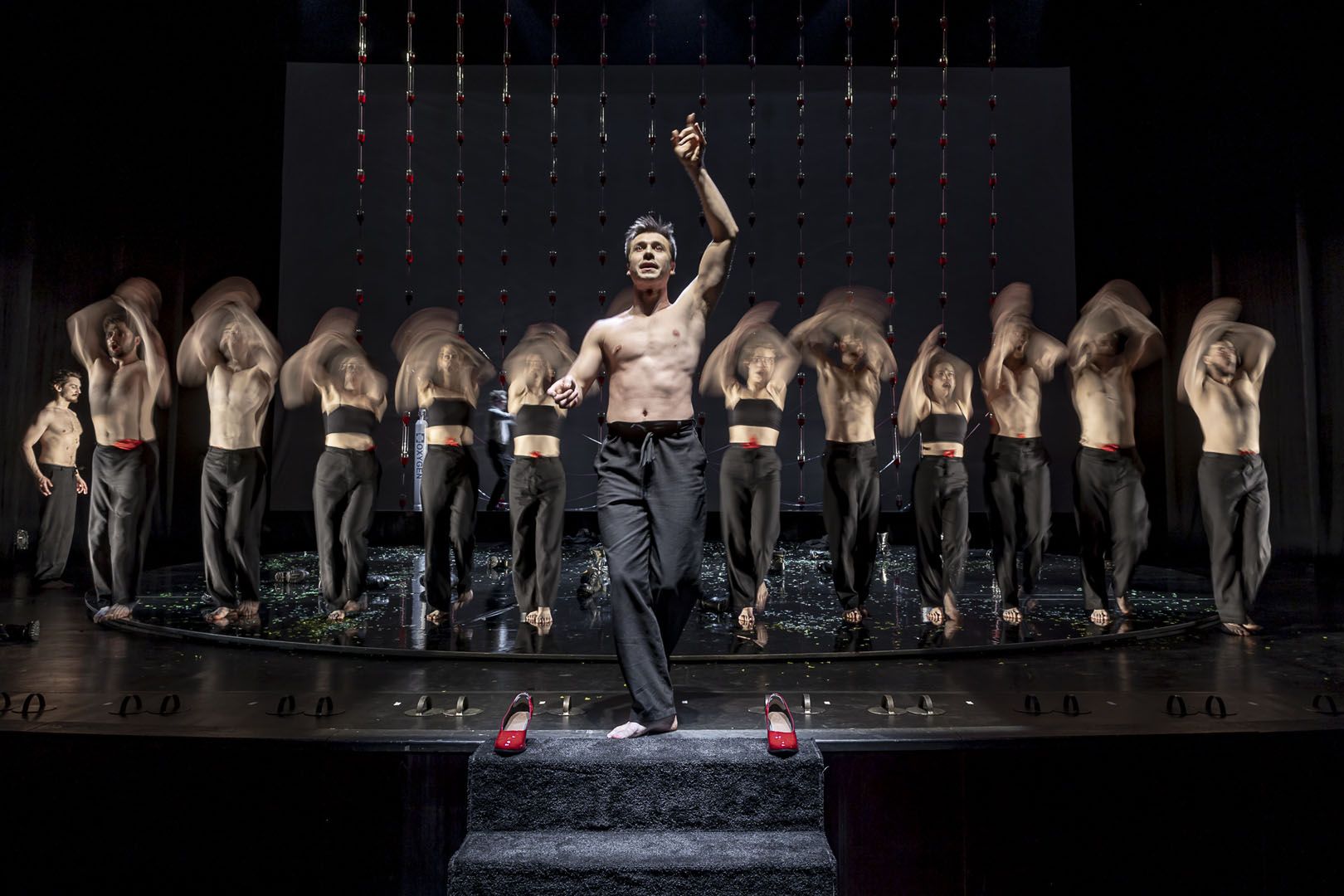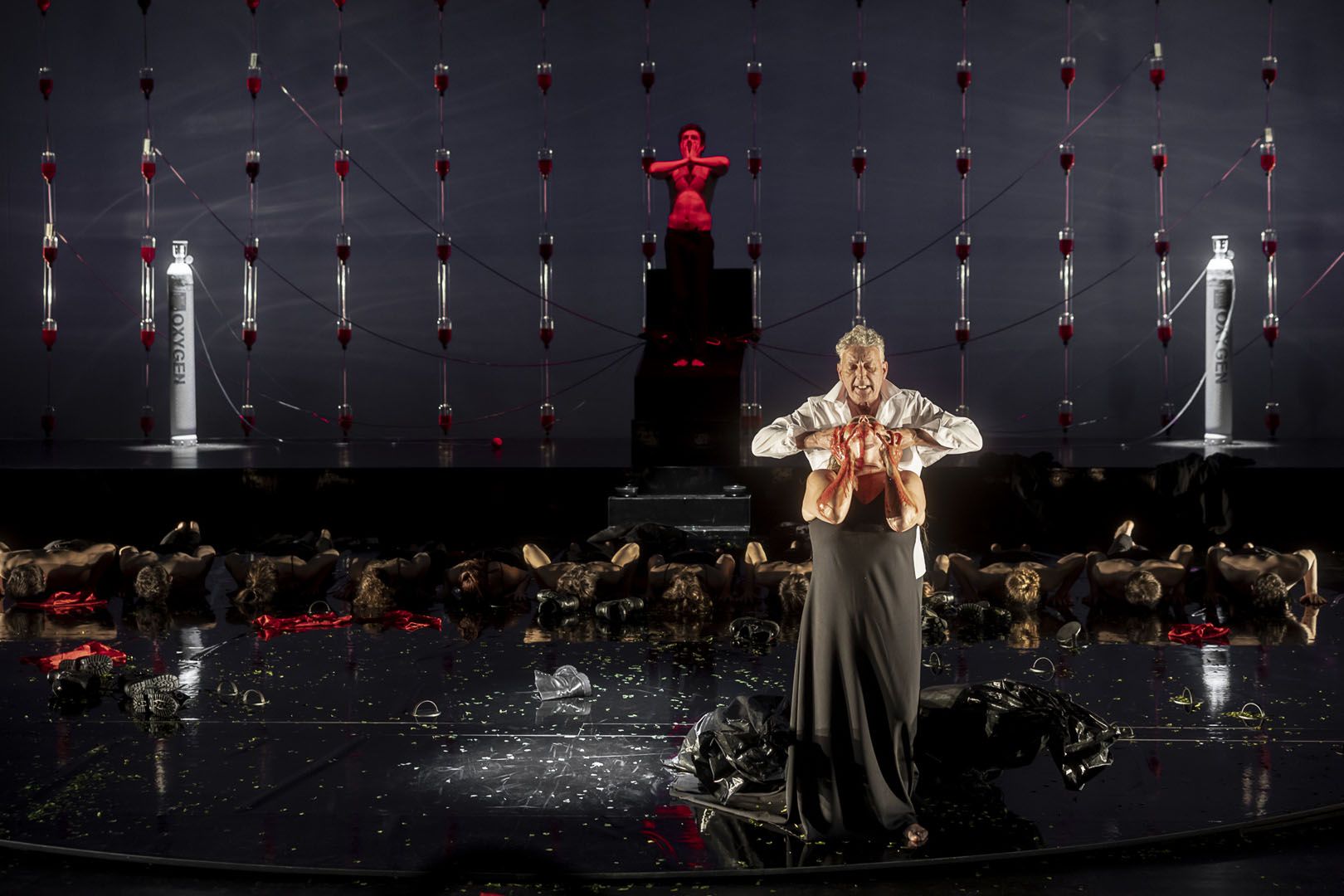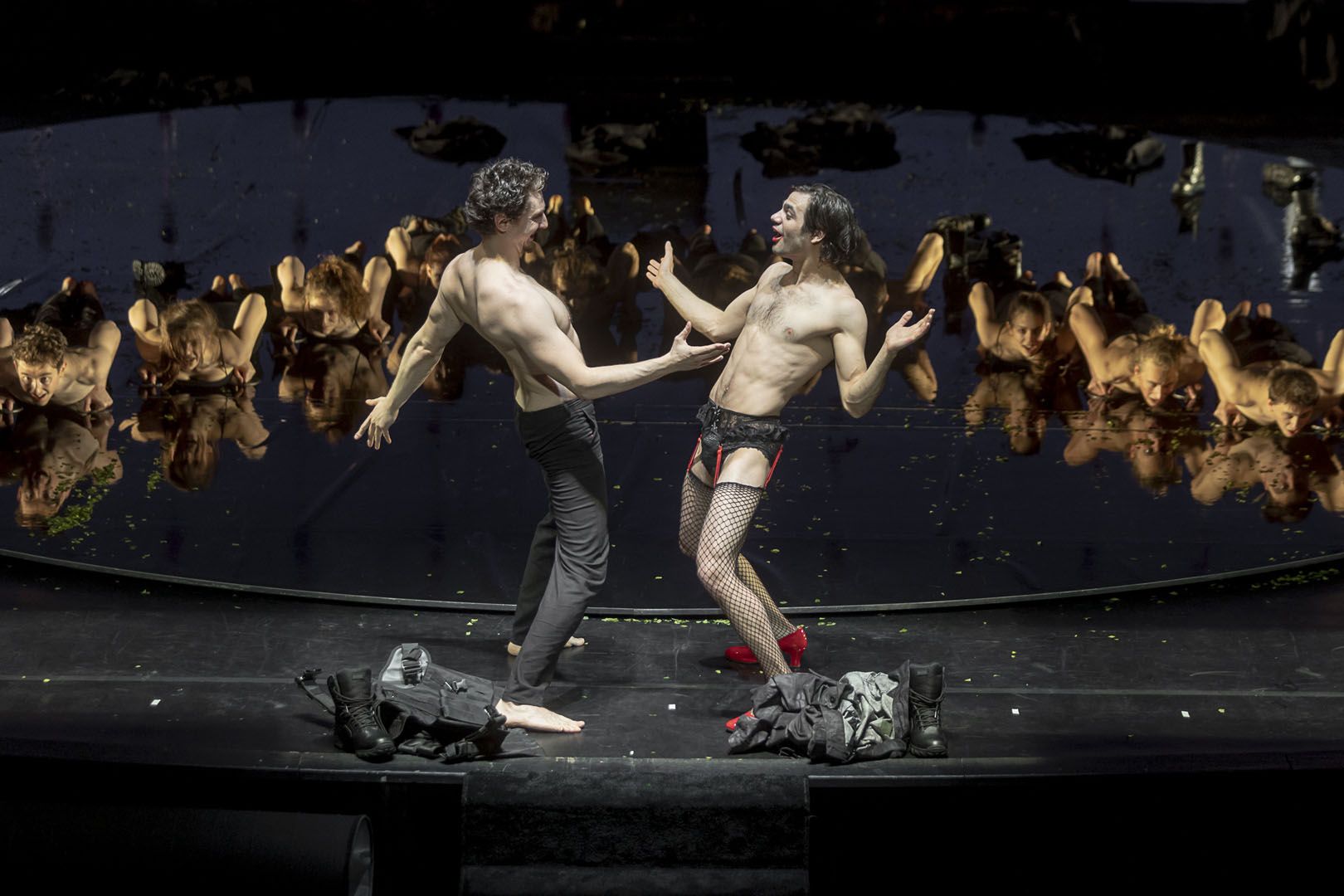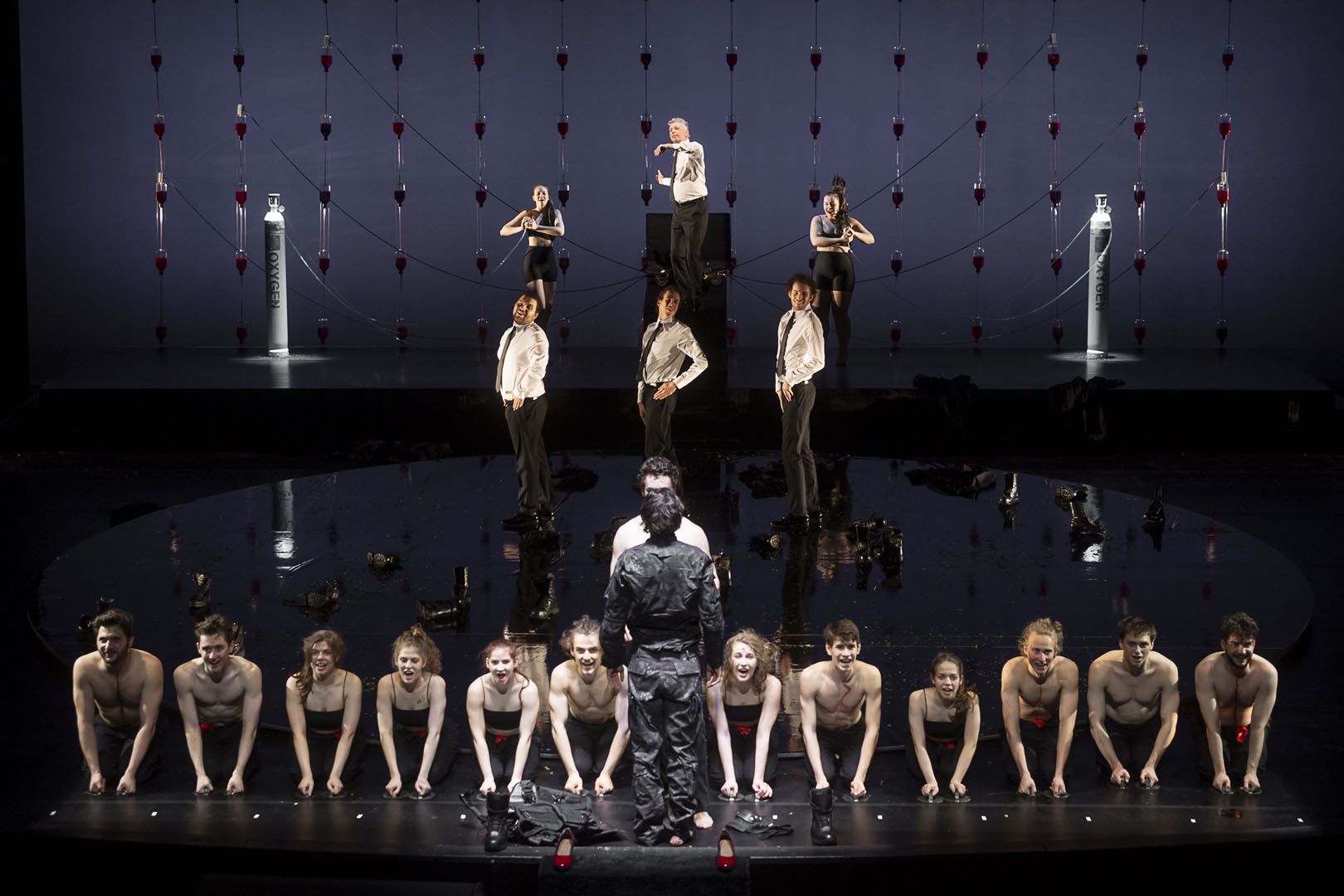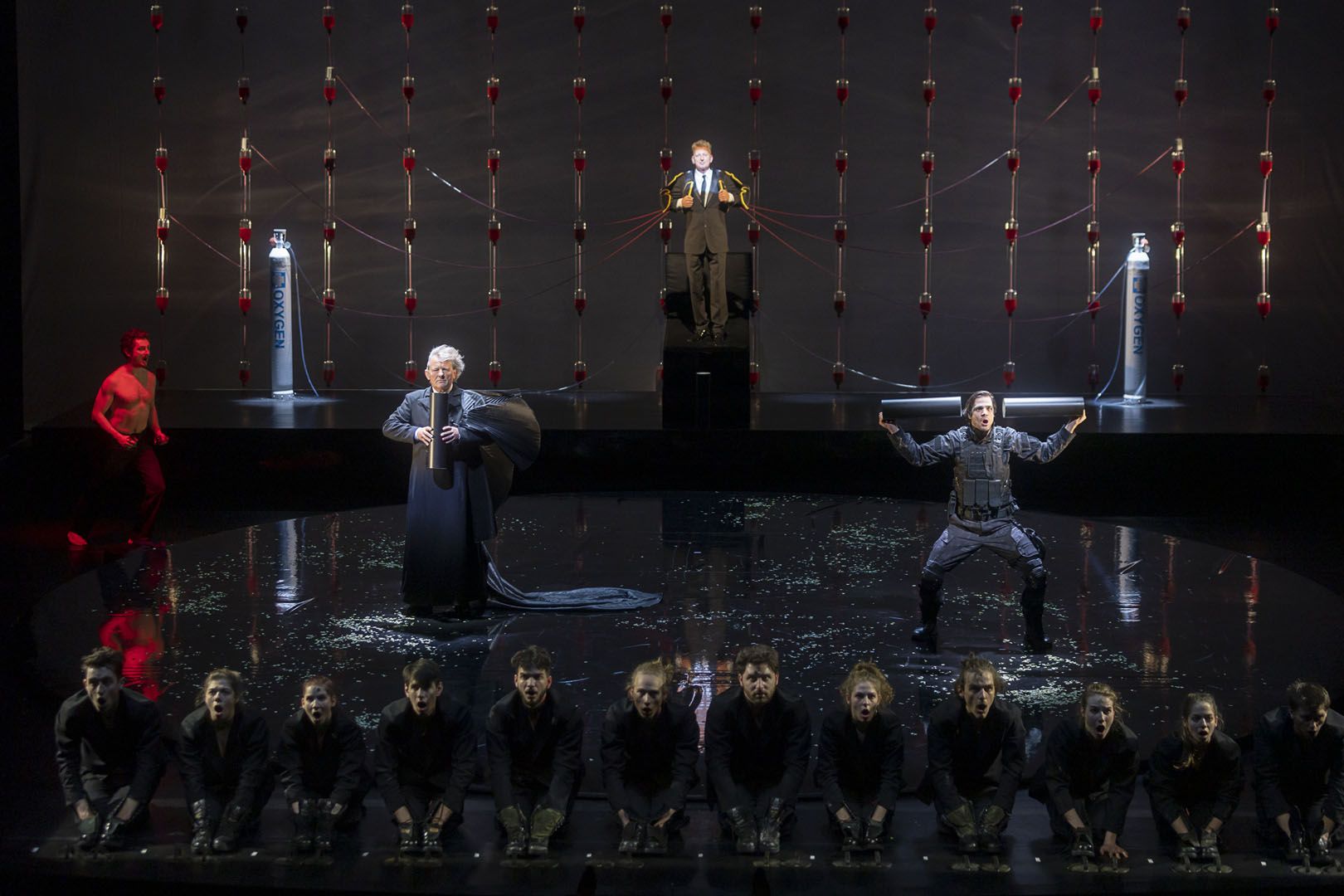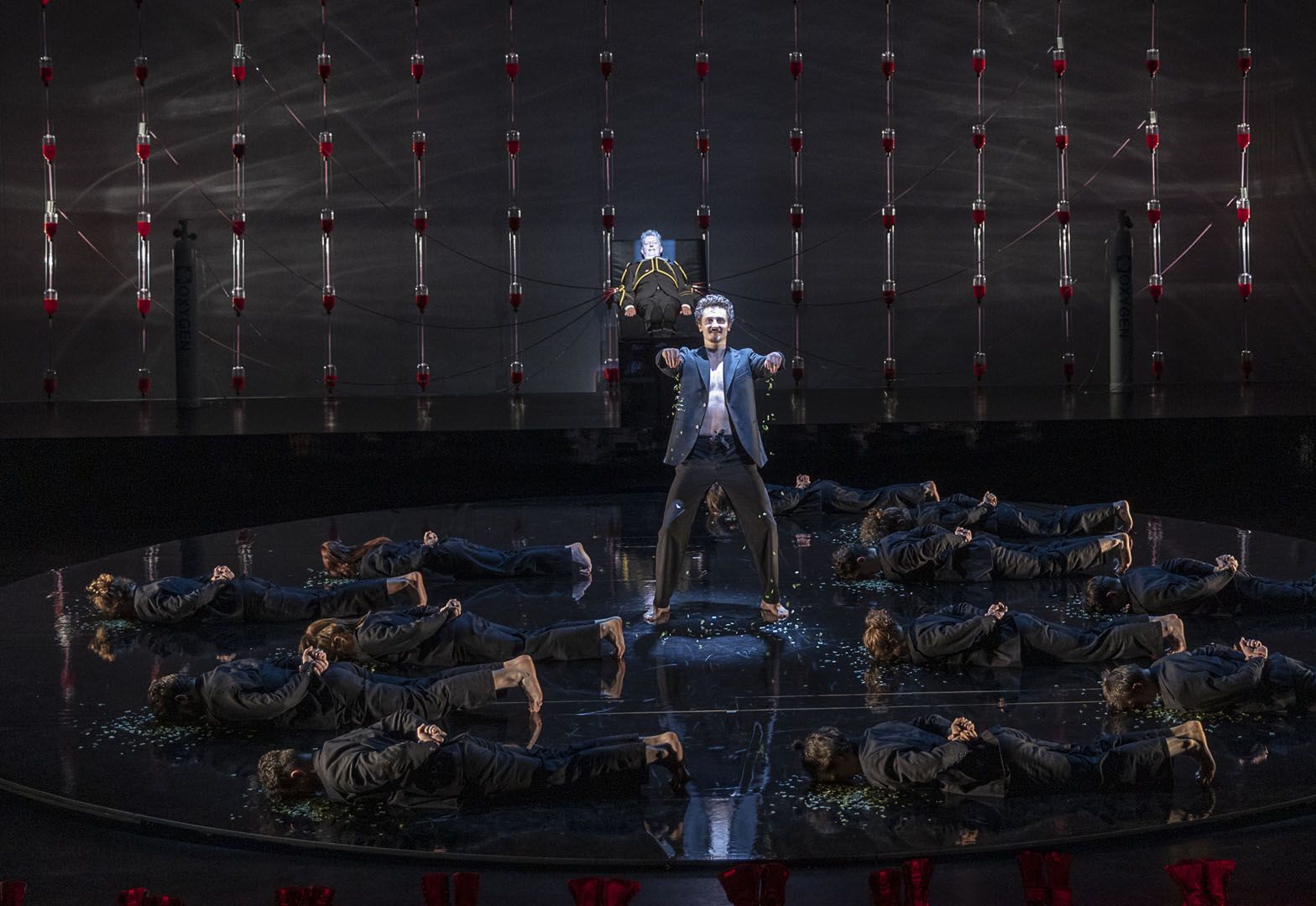THE BACCHAE by Euripides
- Saturday, July 29Curium Ancient Theatre
- Monday, July 31Makarios III Amphitheatre
- Performances start at:21:00Please arrive at the theatre before 20:15
The internationally renowned and acclaimed Greek director, Theodoros Terzopoulos, directs the Hungarian National Theatre’s production of The Bacchae by Euripides, featuring a remarkable cast of Hungarian actors.
In The Bacchae, Euripides recounts the descent of Dionysus to the city of Thebes in order to impose the rites of his worship. King Pentheus refuses to recognize this new god and suffers Dionysus’ wrath. Driven mad by the god’s power, Pentheus dies a horrible death on the peaks of Mount Cithaeron, with his mother, Agave, having committed – while in a delirium – the terrible crime. Dionysus establishes his religion by announcing the terrible fate that has befallen the royal family.
This great master of theatre, with his unwavering decade-long international theatrical presence, introduces his sixth directorial approach to The Bacchae. Through his famous Method, he puts forward another theatrical, political and metaphysical proposal, taking Euripides’ text and stage action to the next level. The Chorus of the Bacchae evolves into a protagonist: it spins, it flies and in the end, it collapses, crushed, following the primordial bacchic footsteps through the music of Panayiotis Velianitis.
“The conflict between Dionysus and Pentheus is that between instinct and logic. When neither can moderate itself, that has a cruel consequence for humans”.
- WITH GREEK AND ENGLISH SURTITLES
- SUITABLE FOR AGES 12+
- DURATION: 90 MINUTES
- Translation:Gábor Devecseri
- Adaptation/Dramaturgy:András Kozma
- Direction/Set-Costume design/Lighting design:Theodoros Terzopoulos
- Musical composition:Panayiotis Velianitis
- Associate Director:Savvas Stroumpos
- Assistant to the Director:Gábor Vida
- Interpreter:Panagiota Lotsu
- Prompter:
Anikó Sütő
- Stage managers:István Lencsés, Krisztián Ködmen
- Photography:
Zsolt Eöri-Szabó
Cast:
- Dionysus:Roland Bordás
- Pentheus:Péter Herczegh
- Agave:Nelli Szűcs
- Cadmus:Ádám Schnell
- Tiresias:József Szarvas
- First Messenger (Herdsman):Martin Mészáros
- Second Messenger (Guard):József Varga
- Chorus, Women from the Palace, Lamentations:
Student-actors of the Faculty of Arts of Rippl-Rónai University and Szent István University
Battai Lili Lujza, Bognár Bence János, Duma Kata, Ionescu Raul Gabriel, Jakab Tamás, Juhász Péter, Kerék Benjámin Dominik, Kiss Anna Gizella, Krauter Dávid Róbert, Mikita Dorka Júlia, Polyák Anita, Puskás Balázs Ákos, Séra Dániel, Sipos Ilka, Soós Anett, Wettstein Márk, Winkler Tamás Ábel
DIRECTOR’S NOTE
37 years ago, I directed for the first time the Bacchae, the inaugural performance of the Attis Theatre group. It was presented in Delphi, the place where the ancient Greeks envisioned the unification of the two gods, Dionysus and Apollo, instinct and logic, as the pillar of measure and harmony.
The myth of the Bacchae has not ceased to preoccupy me for these 37 years. I directed Dionysus in Colombia, a synthesis of the Bacchae tragedy and the Indian myth of Yurupari (1998). Then, the Bacchae at the Dusseldorfer Schaupsielhaus, in Germany (2001). In 2015, I directed The Bacchae at the renovated historical Electrotheatre Stanislavski in Moscow and in 2016 at the National Theatre of Taiwan in Taipei.
37 years have passed and the exiled Dionysus, rejected by the European rationalist tradition, emerges at the National Theatre of Budapest, in the country where great theatrical principles were born, to unite with his magical energy the great Hungarian theatrical tradition with the tradition of ancient tragedy, the mature actors of the National Theatre with the actors of the younger generation.
The rehearsals of the Bacchae were a wonderful experience, full of dialogue, understanding and love. Through the coexistence of many and different points of view and with the common factor of the Dionysian energy, we tried to create a consistent, universal theatrical form and convey the messages of this tragedy to the modern world: revenge, punishment, conflict and assertion in a world that needs more than ever the arrival of the fertilizer Dionysus.
The coincidence of the present war particularly influenced my new view on this tragedy.
Theodoros Terzopoulos
NEMZETI SZÍNHÁZ – HUNGARIAN NATIONAL THEATRE
Hungarian National Theatre – the theatre of the nation
The National Theatre, directed by Attila Vidnyánszky, primarily serves Hungarian audiences, but at the same time, it has a fruitful international life.
Romania’s Silviu Purcărete, Russia’s Viktor Ryzakov and Valery Fokin, Georgia’s David Doiasvili and Avtandil Varsimasvili, Spain’s Ignacio García, Macedonian-born Aleksandar Popovski, Norway’s Eirik Stubø, Greece’s Theodoros Terzopoulos, just as Hungarian artists Sándor Zsótér, István Szabó K., Imre Csiszár, Csaba Kiss, János Szász and Eszter Márkó represent different theatre aesthetics, but the dedication and internationally renowned professionalism of National Theatre’s company is unanimously acknowledged. In the last five years, the National Theatre has played in St. Petersburg, Moscow, Paris, Belgrade, Vienna, Maribor, Brussels and Stockholm.
Madách International Theatre Meeting (MITEM)
The Madách International Theatre Meeting (MITEM), founded in 2014, has become a real success story, as it is a unique theatre event in Hungary and has been put on the festival map of European theatre. The success of MITEM is proven by the fact that most of the National Theatre’s guests are happy to return year after year.The National Theatre has hosted some of Europe’s most important theatre masters, including Theodoros Terzopoulos, Eugenio Barba, Silviu Purcărete, Thomas Ostermaier, Michael Thalheimer, Robert Wilson, Emma Dante, Antonio Latella, Toni Servillo, Luk Perceval, Eimuntas Nekrošius, Rimas Tuminas, Valery Fokin, Alvis Hermanis, Viktor Ryzakov and Alessandro Serra.
10th Theatre Olympics
If the personnel of the National Theatre had not demonstrated their professionalism year after year, we would hardly have had the opportunity that the 10th International Theatre Olympics represents.In 2023, Hungary is hosting the International Theatre Olympics (58 countries, 400 companies, 750 performances, and 7500 participants). At the 10th International Theatre Olympics, the National Theatre celebrates the passion for theatre with its guests so that it can build bridges in these difficult times.
